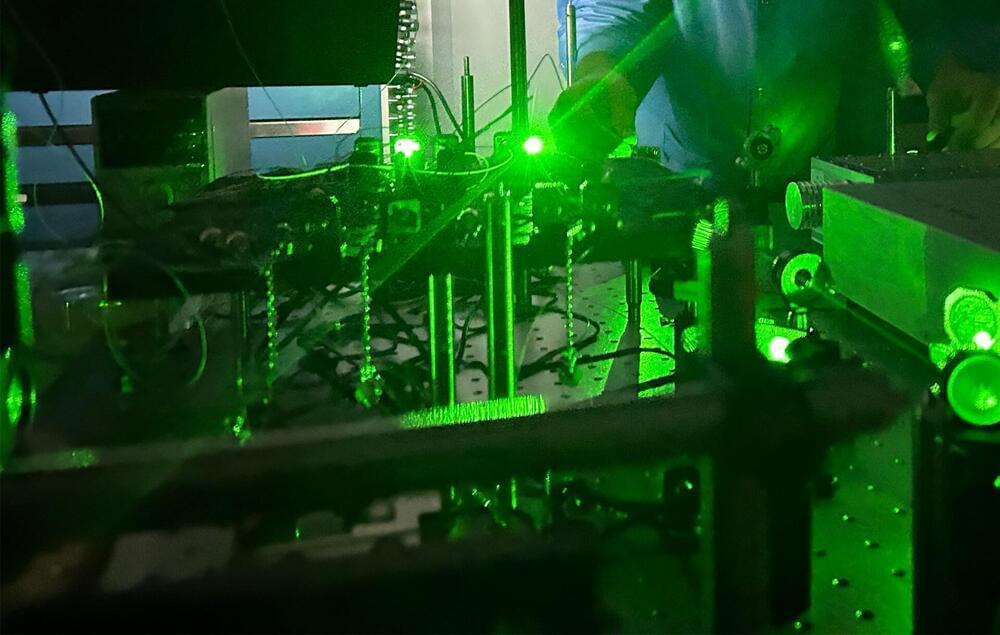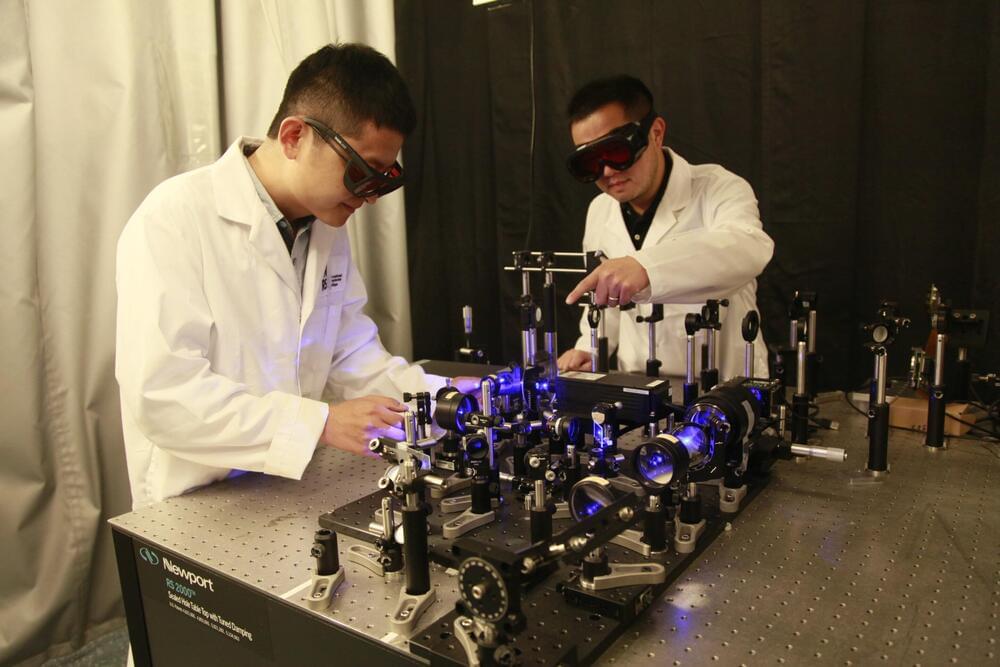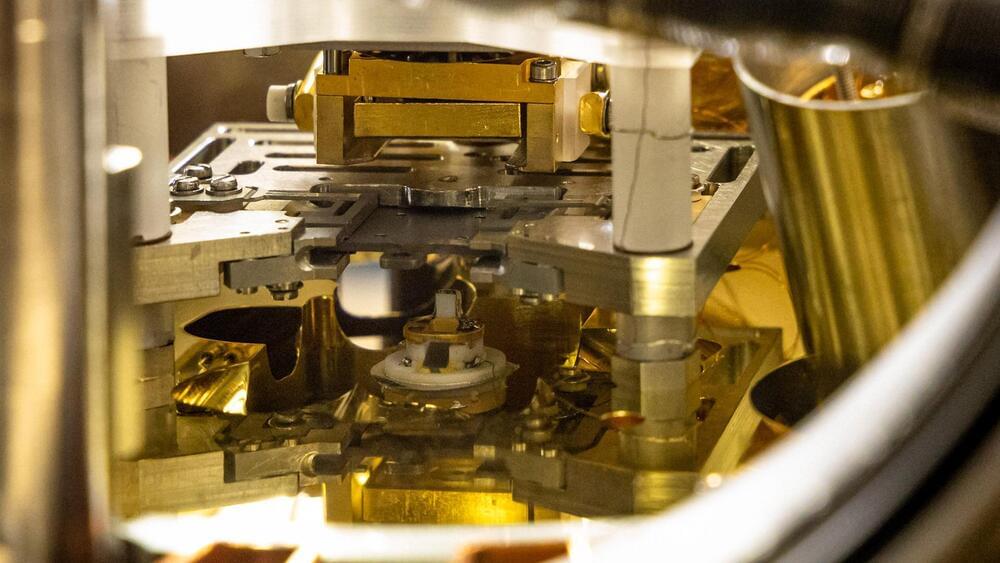Inspired by the flexible joints of humans, the scientists from the University of Science and Technology of China (USTC), of the Chinese Academy of Science, led by Prof. Wu Dong, proposed a two-in-one multi-material laser writing strategy that creates the joints from temperature-sensitive hydrogels as well as metal nanoparticles.
Get the latest international news and world events from around the world.

Liquid Computer Made From DNA Comprises Billions of Circuits
For eons, deoxyribonucleic acid (DNA) has served as a sort of instruction manual for life, providing not just templates for a vast array of chemical structures but a means of managing their production.
In recent years engineers have explored a subtly new role for the molecule’s unique capabilities, as the basis for a biological computer. Yet in spite of the passing of 30 years since the first prototype, most DNA computers have struggled to process more than a few tailored algorithms.
A team researchers from China has now come up with a DNA integrated circuit (DIC) that’s far more general purpose. Their liquid computer’s gates can form an astonishing 100 billion circuits, showing its versatility with each capable of running its own program.

Researchers make a significant step towards reliably processing quantum information
Using laser light, researchers have developed the most robust method currently known to control individual qubits made of the chemical element barium. The ability to reliably control a qubit is an important achievement for realizing future functional quantum computers.
The paper, “A guided light system for agile individual addressing of Ba+ qubits with 10−4 level intensity crosstalk,” was published in Quantum Science and Technology.
This new method, developed at the University of Waterloo’s Institute for Quantum Computing (IQC), uses a small glass waveguide to separate laser beams and focus them four microns apart, about four-hundredths of the width of a single human hair. The precision and extent to which each focused laser beam on its target qubit can be controlled in parallel is unmatched by previous research.
Healthcare in the METAVERSE? — Future of Medicine
Join this channel to get access to perks:
https://www.youtube.com/channel/UCiPW7OlzTfQjR_vLlkYPZCg/join.
Join the Dr. Cellini Family: https://tinyurl.com/DrCellini.
______
CONTACT ME:
📸 Instagram — https://instagram.com/drcellini.
📹 TikTok — @DrCellini.
🐦 Twitter — https://twitter.com/dr_cellini.
📧 Email: [email protected].
———-
https://www.wearfigs.com.
———-
MY TOOLS & GEAR:
🎥 My YouTube Camera Gear — https://www.amazon.com/shop/drcellini?tag=lifeboatfound-20.
⌨️ My Keyboard — Wireless F96 KAT mechanical keyboard — http://iqunix.store/drcellini.
🎵 Where I get ALL of My Music from Epidemic Sound! — https://www.epidemicsound.com/referral/25q7o4/
My Camera: https://amzn.to/2GX4whr.
My Lens: https://amzn.to/2C7NYxt.
Camera Tripod: https://amzn.to/2LUABWf.
Memory Card: https://amzn.to/2LVjtPZ
As an Amazon Associate I earn commission with use of the above links on qualifying purchases
———-
OTHER STUFF:



New camera offers ultrafast imaging at a fraction of the normal cost
Capturing blur-free images of fast movements like falling water droplets or molecular interactions requires expensive ultrafast cameras that acquire millions of images per second. In a new paper, researchers report a camera that could offer a much less expensive way to achieve ultrafast imaging for a wide range of applications such as real-time monitoring of drug delivery or high-speed lidar systems for autonomous driving.
“Our camera uses a completely new method to achieve high-speed imaging,” said Jinyang Liang from the Institut national de la recherche scientifique (INRS) in Canada. “It has an imaging speed and spatial resolution similar to commercial high-speed cameras but uses off-the-shelf components that would likely cost less than a tenth of today’s ultrafast cameras, which can start at close to $100,000.”
In a paper, titled “Diffraction-gated real-time ultrahigh-speed mapping photography” appearing in Optica, Liang together with collaborators from Concordia University in Canada and Meta Platforms Inc. show that their new diffraction-gated real-time ultrahigh-speed mapping (DRUM) camera can capture a dynamic event in a single exposure at 4.8 million frames per second. They demonstrate this capability by imaging the fast dynamics of femtosecond laser pulses interacting with liquid and laser ablation in biological samples.

What’s That Smell? An AI Nose Knows
12:17 minutes.
Predicting smells is more difficult. While we know that many sulfur-containing molecules tend to fall somewhere in the ‘rotten egg’ or ‘skunky’ category, predicting other aromas based solely on a chemical structure is hard. Molecules with a similar chemical structure may smell quite different—while two molecules with very different chemical structures can smell the same.
I Challenged My AI Clone to Replace Me for 24 Hours
New AI voice and video tools can look and sound like you. But can they fool your family—or bank?
WSJ’s Joanna Stern replaced herself with her AI twin for the day and put “her” through a series of challenges, including creating a TikTok, making video calls and testing her bank’s voice biometric system.
0:00 How to make an AI video and voice clone.
2:29 Challenge 1: Phone calls.
3:36 Challenge 2: Create a TikTok.
4:47 Challenge 3: Bank Biometrics.
6:05 Challenge 4: Video calls.
6:45 AI vs. Humans.
Tech Things With Joanna Stern.
Everything is now a tech thing. In creative and humorous videos, WSJ senior personal tech columnist Joanna Stern explains and reviews the products, services and trends that are changing our world.
#AI #Tech #WSJ

Scientists uncover mystery of important material for semiconductors at the surface
A team of scientists with the Department of Energy’s Oak Ridge National Laboratory has investigated the behavior of hafnium oxide, or hafnia, because of its potential for use in novel semiconductor applications.
Materials such as hafnia exhibit ferroelectricity, which means that they are capable of extended data storage even when power is disconnected and that they might be used in the development of new, so-called nonvolatile memory technologies. Innovative nonvolatile memory applications will pave the way for the creation of bigger and faster computer systems by alleviating the heat generated from the continual transfer of data to short-term memory.
The scientists explored whether the atmosphere plays a role in hafnia’s ability to change its internal electric charge arrangement when an external electric field is applied. The goal was to explain the range of unusual phenomena that have been obtained in hafnia research. The team’s findings were recently published in Nature Materials. The title of the paper is “Ferroelectricity in hafnia controlled via surface electrochemical state.”